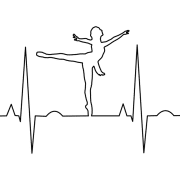Is rhythm a dancer?
I, without the shadow of a doubt, have been caught before speaking about motricity and cognition.
In 2013, a study out of Northwestern University, Dr. Nina Kraus showed a relationship between neural response consistency and ability to keep a beat. She has a particular interest in studying the relationships between speech, music and learning.
It is more than a 100 high school students that were studied in order to realize that there are surprising links between music, rhythmic abilities and language skills.
This study is actually the first to provide biological evidence linking the ability to keep a beat to the neural encoding of speech sounds. According to Kraus, this has significant implications for reading.
In the Journal of Neuroscience, on September 18th, a link was published between reading ability and beat keeping.
What this current study demonstrates is that accurate beat keeping involves synchronization between the parts of the brain responsible for hearing as well as movement.
Kraus adds: “rhythm is an integral part of both music and language and the rhythm of spoken language is a crucial cue to understanding”.
When one considers that the cerebellum is highly involved in rhythm production an that it is also responsible for activating the pre frontal areas where language is produced, maybe there actually is something about these coordination exercises suggested in the context of Functional Neurology in terms of improving both movement and learning!
https://m.medicalxpress.com/news/2013-09-importance-link-ability-language-skills.html

